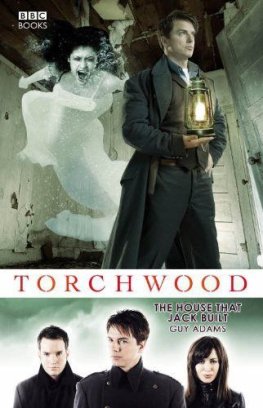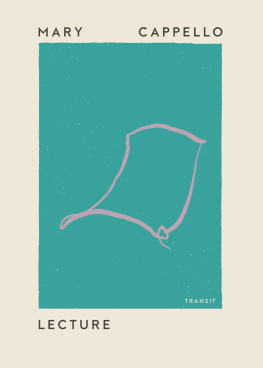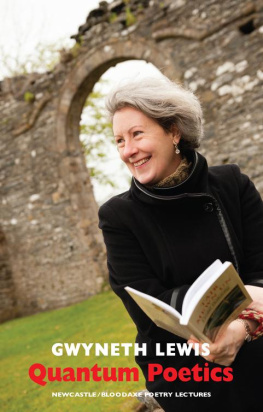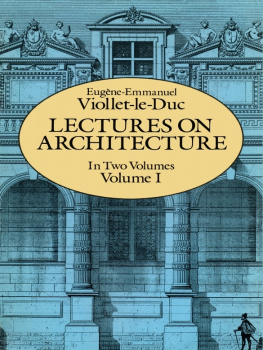THE HOUSE THAT JACK BUILT

THE HOUSE
THAT JACK BUILT
The Collected Lectures
of Jack Spicer
Edited and with an Afterword by
Peter Gizzi

Published by Wesleyan University Press, Middletown, CT 06459
www.wesleyan.edu/wespress
1998 by Peter Gizzi and the Estate of Jack Spicer
All rights reserved
Printed in the United States of America 5 4 3 2
CIP data appear at the end of the book
Acknowledgment of Copyrighted Material
Two Presentations, by Robert Duncan, from Roots and Branches. Copyright 1964 by Robert Duncan. Reprinted by permission of New Directions Publishing Corp.
Excerpts are reprinted from The Collected Poetry of Robinson Jeffers, Volume Three, 19391962, edited by Tim Hunt, with the permission of the publishers, Stanford University Press. Copyright 1995 by the Board of Trustees of the Leland Stanford Junior University.
O Taste and See, by Denise Levertov, from Poems 19601967. Copyright 1964 by Denise Levertov. Reprinted by permission of New Directions Publishing Corp.
Excerpts from The Collected Books of Jack Spicer, edited by Robin Blaser, copyright 1975 by the Estate of Jack Spicer, are reprinted with the permission of Black Sparrow Press.
Excerpts from One Night Stand & Other Poems, copyright 1980 by the Estate of Jack Spicer, are reprinted by permission of Grey Fox Press.
Uncollected and unpublished materials by Jack Spicer are printed with the permission of Robin Blaser, literary executor of the Estate of Jack Spicer.
Grateful acknowledgment is made to The American Poetry Review and Boxkite, in which parts of this book first appeared.
Frontispiece photo of Jack Spicer courtesy of the Helen Adam Collection, State University of New York at Buffalo.
This is the melancholy Dane
That built all the houses that lived in the lane
Across from the house that Jack built.
This is the maiden all forlorn, a
crumpled cow and a crumpled horn
Who lived in the house that Jack built.
This is the crab-god shiny and bright
who sunned by day and wrote by night
And lived in the house that Jack built.
This is the end of it, very dear friend, this
is the end of us.
JACK SPICER
for Robin Blaser
CONTENTS
PREFACE
Acknowledgments
A special thanks to Robin Blaser for his generous support and advice, for preserving and opening Spicers archive, and for his permission to bring this edition into print; to Donald Allen for discovering a generation and for his permission to reprint from Spicers early poems One Night Stand; to Warren Tallman (in memoriam), without whom these lectures would never have happened; and to John Martin for keeping The Collected Books of Jack Spicer in print these past twenty-three years.
Id like to thank my dissertation committee: Charles Bernstein, Robert Creeley, and Susan Howe of the Poetics Program at the State University of New York at Buffalo.
Because Ive been working simultaneously on two Spicer projects (the lectures and the letters), the following acknowledgments reflect support for both projects. Id like to thank the following agencies: The Graduate Student Association of SUNY Buffalo for a Mark Diamond research grant, the English department at Brown University for the appointment of Visiting Scholar (19941995), the Humanities division of the University of California, Santa Cruz, for a COR travel grant, and, last but not least, Robert Hunter of the Rex Foundation. I would also like to thank the following librarians and collections: Charles Watts of the Special Collections of the Bennett Library at Simon Fraser University, Robert J. Bertholf and Michael Basinski of the Poetry/Rare Books Room at SUNY Buffalo, Bonnie Hardwick of the Bancroft Library at UC Berkeley, and Emily Wolff of the California Historical Society.
Thanks to Kevin Killian for sharing early drafts of his work on Spicers biography, for ongoing discussion, and for reading over six hundred pages of both the lectures and letters manuscripts.
Of the many who have contributed information, advice, citations, interviews, discussion, and genuine interest, I would like to thank: Bruce Boone, Angela Bowering, George Bowering, David Bromige, Julie H. Brower, Lori Chamberlain, Joseph Conte, Clark Coolidge, Stephen Cope, Michael Davidson, Tim Davis, Steve Dickison, Ulla Dydo, Lew Ellingham, Steve Evans, Larry Fagin, Ed Foster, Raymond Foye, Alan Gilbert, Michael Gizzi, the late John Halverson, Gladys Hindmarch, Lisa Jarnot, Ricky Jay, Stephanie Judy, Joanne Kyger, Nathaniel Mackey, Graham Mackintosh, Tom Marshall, Andrew Maxwell, Eileen McWilliam, Andrew Mossin, A. L. Nielson, Linda Norton, Loisa Nygaard, Michael Palmer, Bob Perelman, Marjorie Perloff, Stan Persky, Kristin Prevallet, Jamie Reid, Aaron Shurin, Juliana Spahr, Holt Spicer, George Stanley, Catriona Strang, Ellen Tallman, Karen Tallman, Suzanna Tamminen, James Taylor, Joe Torra, Arthur Vogelsang, Tom Vogler, Keith Waldrop, Rosmarie Waldrop, Barrett Watten, Charles Watts, and John Wieners.
Id like to thank the individuals in my classes at Brown University and UCSC who read, discussed, and got with Spicers poetry. In particular Id like to mention Chris Brignetti, MacGregor Card, Bill Gregoire, Mike Grinthal, Stephanie Hindley, Kelly Holt, Eleana Kim, Jon McCoy, Karen Pittelman, Bianca Pulitzer, Sam Truitt, and Magdalena Zurawski.
And finally, a personal thanks to Elizabeth Willis for allowing a ghost into our house, for two years of generative conversation and unconditional support, and for her assistance in preparing the final manuscript.
A Note on the Text
For such a noncanonical figure, Spicer has elicited a significant number of remarkable essays, many of which refer to the lectures. But often the text that has been cited is the abridged version of the first lecture, which was published in Caterpillar 12, or the excerpts printed in The Poetics of the New American Poetry, and a more complete edition of the entire series of talks has been long overdue. In the notes and Afterword to the lectures I have tried to illuminate various traditions and countertraditions that informed Spicers period and to share some of the correspondences that occurred when researching specific facts, restricting myself primarily to books and information that would have been available to Spicer in his lifetime. The notes and commentary are by no means exhaustive, as Spicers field of reference continues to resonate in further ways.
The difficulty of both transcribing and editing an oral or performative text into print media has been discussed by Dennis Tedlock, Jerome McGann, and others. Spicers lectures are authentic oral textsthat is, he was not reading from notesbut they are texts in which the performative aspects of the text (the room tone, hesitations in speech, audience laughter, etc.) are of only peripheral interest. It was clear to the audience that Spicers purpose in the lectures was literally to tell the truth. In my interviews with them, many of the audience members expressed the sense that Spicer felt he was offering something akin to his dying words. Given this air of finality and the importance of accurately conveying the sense of the lectures, I have seen my role as that of facilitating the reading and comprehension of the text as much as possible while retaining an authentic text (refraining from any extensive editing based on my own interests) and including extraneous information such as laughter only when it illuminates the degree of audience comprehension and when it displays Spicers quick, off-the-cuff humor.
Next page









